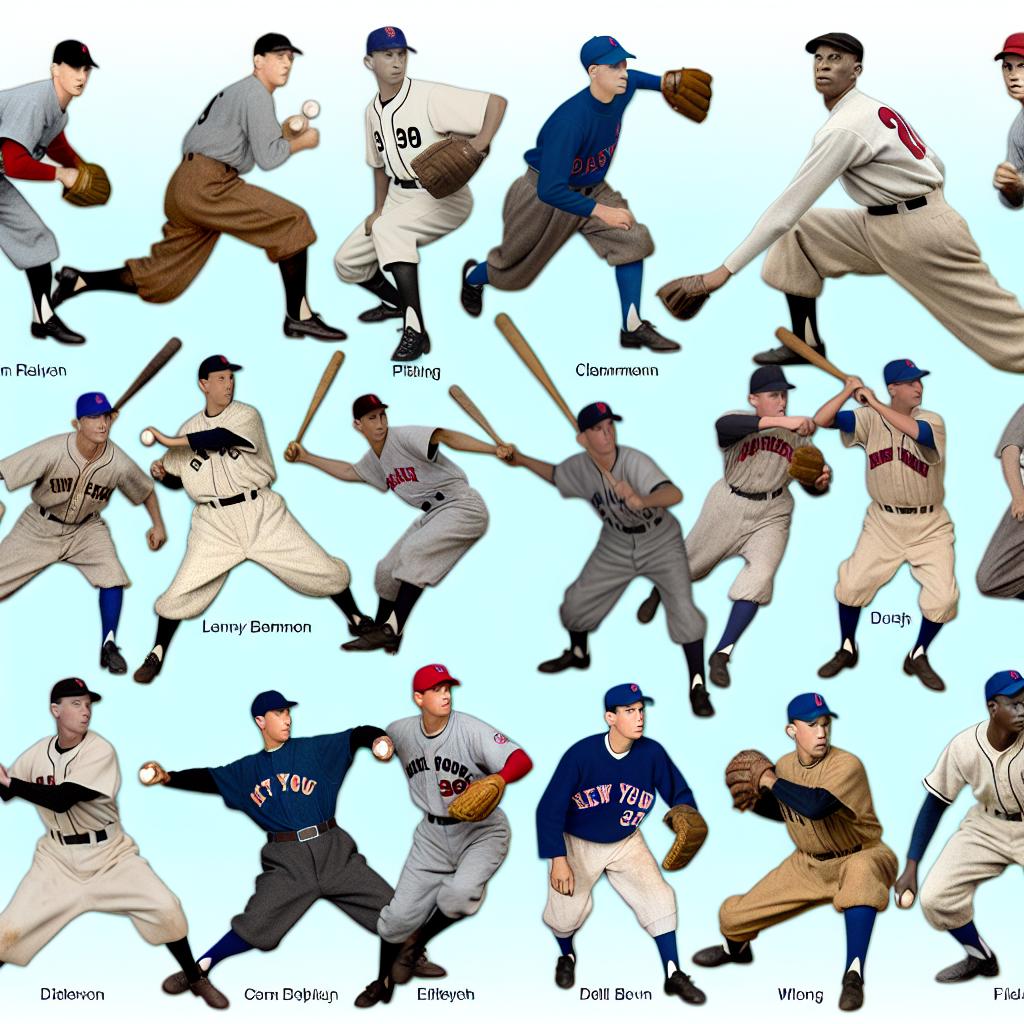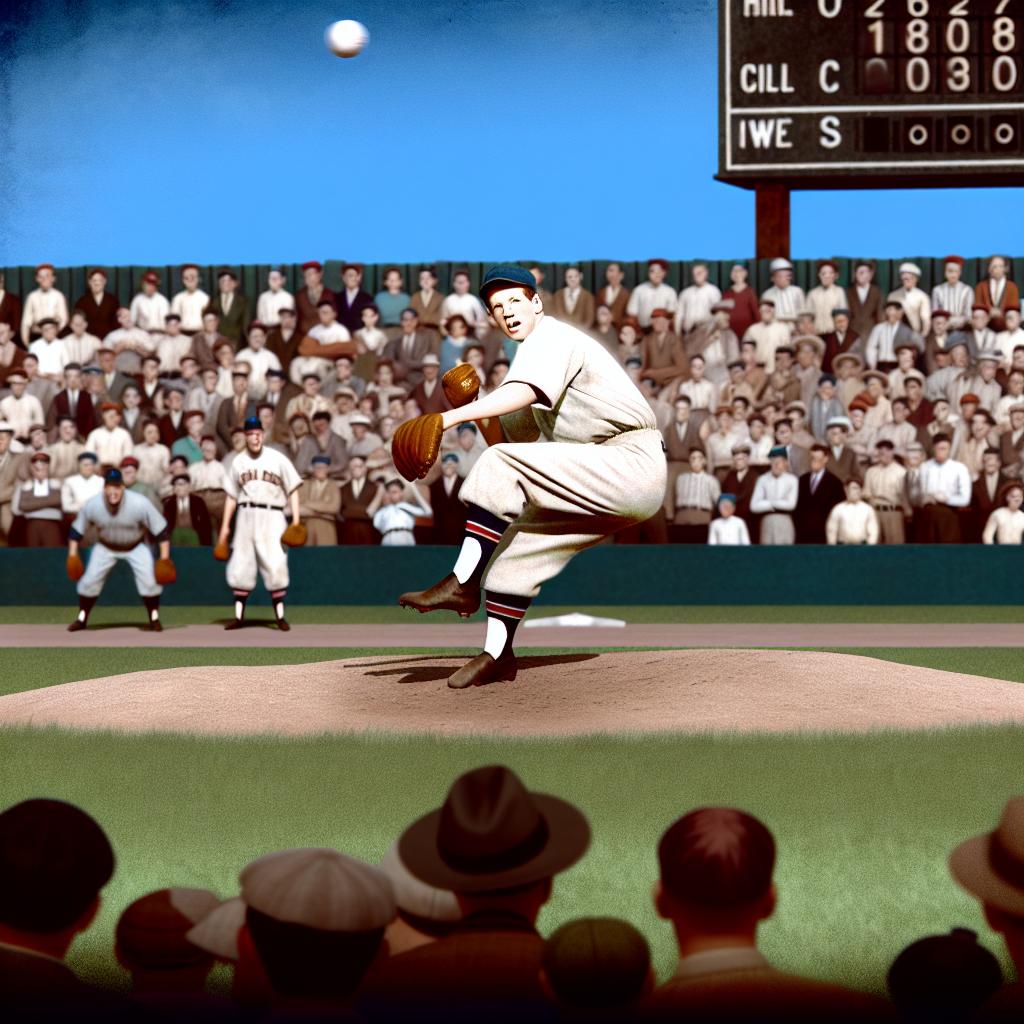Babe Ruth
Babe Ruth, an iconic figure in baseball history, played from 1914 to 1935. Starting his career with the Boston Red Sox as a talented pitcher, Ruth soon transitioned to become a legendary outfielder for the New York Yankees. His ability to hit home runs was unprecedented, ultimately shifting the dynamics of the sport altogether. Ruth’s prowess is perhaps best exemplified by his sensational 1927 season, during which he set a then-unheard-of record by hitting 60 home runs. This achievement not only set a new benchmark for the sport but also propelled Ruth to the status of folk hero in American culture.
Ruth’s influence on baseball cannot be overstated. As a central figure in the “Live Ball Era,” often characterized by an increase in home run hitting, his impact on the game’s popularity is undeniable. Babe Ruth’s feats at the plate and his charismatic personality helped to draw unprecedented attention to baseball, transforming it from a popular sport into a major spectacle and essential component of American culture. His popularity contributed to increased attendance at games, elevating the profile of professional baseball.
Beyond his hitting skills, Babe Ruth’s larger-than-life persona captivated the public. Known for his exuberant lifestyle and grand gestures, his life both on and off the field was a matter of public interest. Even after retiring, Ruth’s legacy continued to influence ensuing generations of players and fans alike. To many, he is remembered not only as a phenomenal athlete but also as a cultural icon whose name is synonymous with baseball greatness.
Willie Mays
Willie Mays is widely recognized as one of the most dynamic and complete players in baseball history. Famous for his all-around abilities, Mays excelled in hitting, fielding, and base running, making him a valuable asset to his teams. He spent the majority of his illustrious career with the San Francisco Giants, where he was celebrated for his unmatched defensive skills.
Mays’ defensive aptitude is best epitomized by his unforgettable over-the-shoulder catch in the 1954 World Series, a moment that remains one of the most iconic defensive plays in baseball history. His identical trademark combination of agility, instinct, and skill not only made him a fan favorite but also set new standards for outfielders. With 660 career home runs and two MVP awards under his belt, his impact on the sport went beyond mere statistics.
Throughout his career, Willie Mays emphasized the significance of consistency, leadership, and continuous improvement, traits that have inspired countless players over the years. His influence remains evident not just in the record books but also in the reverential manner in which he is still spoken of today. Mays’ legacy casts a long shadow over the game, reminding us of the blend of excellence that defines true greatness.
Hank Aaron
Hank Aaron stands as a towering figure in Major League Baseball, celebrated for his monumental achievement of breaking Babe Ruth’s all-time home run record. Over a career spanning from 1954 to 1976, Aaron amassed an astonishing 755 career home runs. This remarkable feat secured his place in the annals of baseball history and stood unchallenged for decades.
Aaron’s prowess at the plate was not limited to home runs. Known for his consistent performance, he was a 25-time All-Star, an extraordinary accomplishment reflecting his steady excellence. In 1957, Aaron’s exceptional season earned him the National League MVP award. His contributions to baseball, however, extend far beyond his statistical achievements.
As an African American athlete playing during a period of significant social change, Aaron took on roles that transcended athletic achievement. He was a key figure in the fight for racial equality within the sport, a courageous advocate at a time when racial tension was significantly high. His grace under pressure, resilience in the face of adversity, and dignified demeanor made him a role model and source of inspiration both within and outside the baseball community.
Today, Hank Aaron’s legacy is a testament to his extraordinary talent, his leadership, and his tireless commitment to equality and justice. His contributions continue to influence the game, offering a powerful reminder of the enduring impact of integrity and perseverance.
Ted Williams
Ted Williams, famously regarded as one of the greatest hitters in the history of Major League Baseball, spent his entire career with the Boston Red Sox. Renowned for his sophisticated understanding of the strike zone, Williams possessed an exceptional eye at the plate. His career batting average of .344, alongside his achievement of the Triple Crown twice, underscores his extraordinary hitting ability.
Williams’ 1941 season remains one of the most iconic in baseball history, as he achieved a .406 batting average—a remarkable accomplishment that has yet to be surpassed. His focus, discipline, and dedication to the craft of hitting made him a revered figure among his peers and set a high standard for aspiring players.
Extending beyond his baseball career, Williams served in the military during both World War II and the Korean War, demonstrating extraordinary patriotism and dedication. His absences from the game for military service are a poignant reminder of his sacrifices and contributions beyond the diamond.
Throughout his life, Ted Williams was an embodiment of mastery in athletics as well as a figure of resilience and principled dedication. His legacy continues to be celebrated, serving as a beacon for new generations of players and fans who look back at his remarkable achievements with admiration and respect.
Further Information
For more detailed player statistics and career insights, resources such as Baseball Reference offer comprehensive databases that cater to those seeking a deeper understanding of baseball history. Additionally, the official Major League Baseball website provides current and historical data about the league and its players, serving as a valuable resource for fans and researchers alike.





